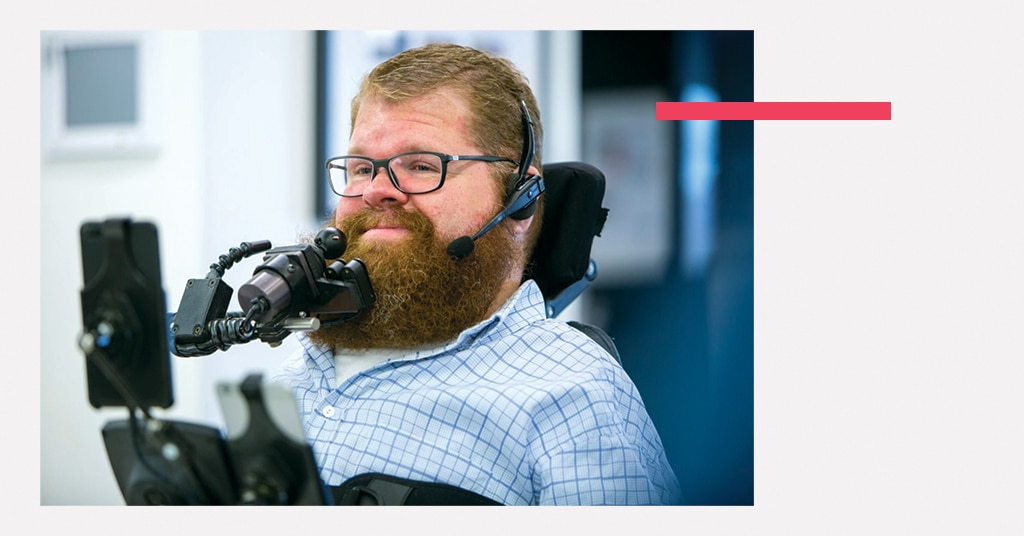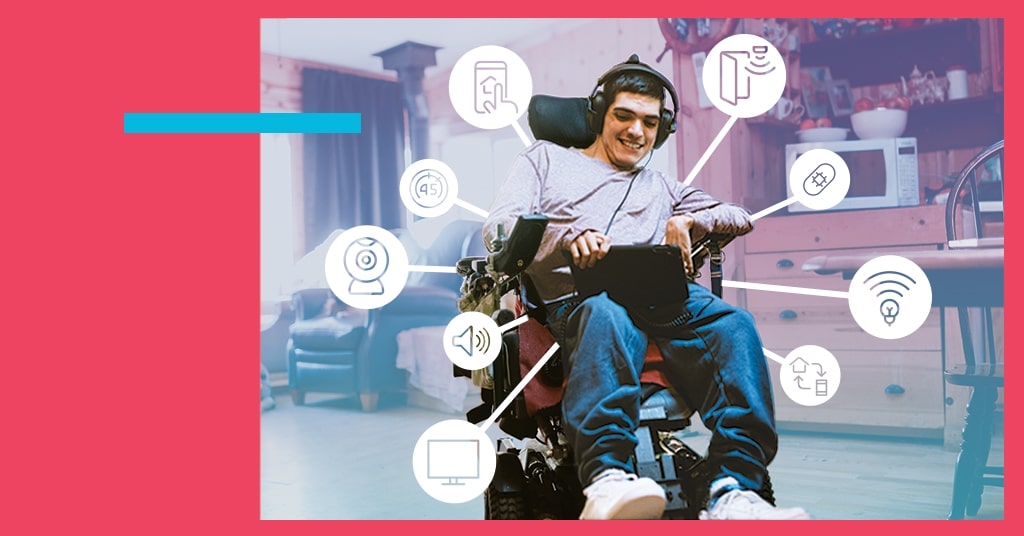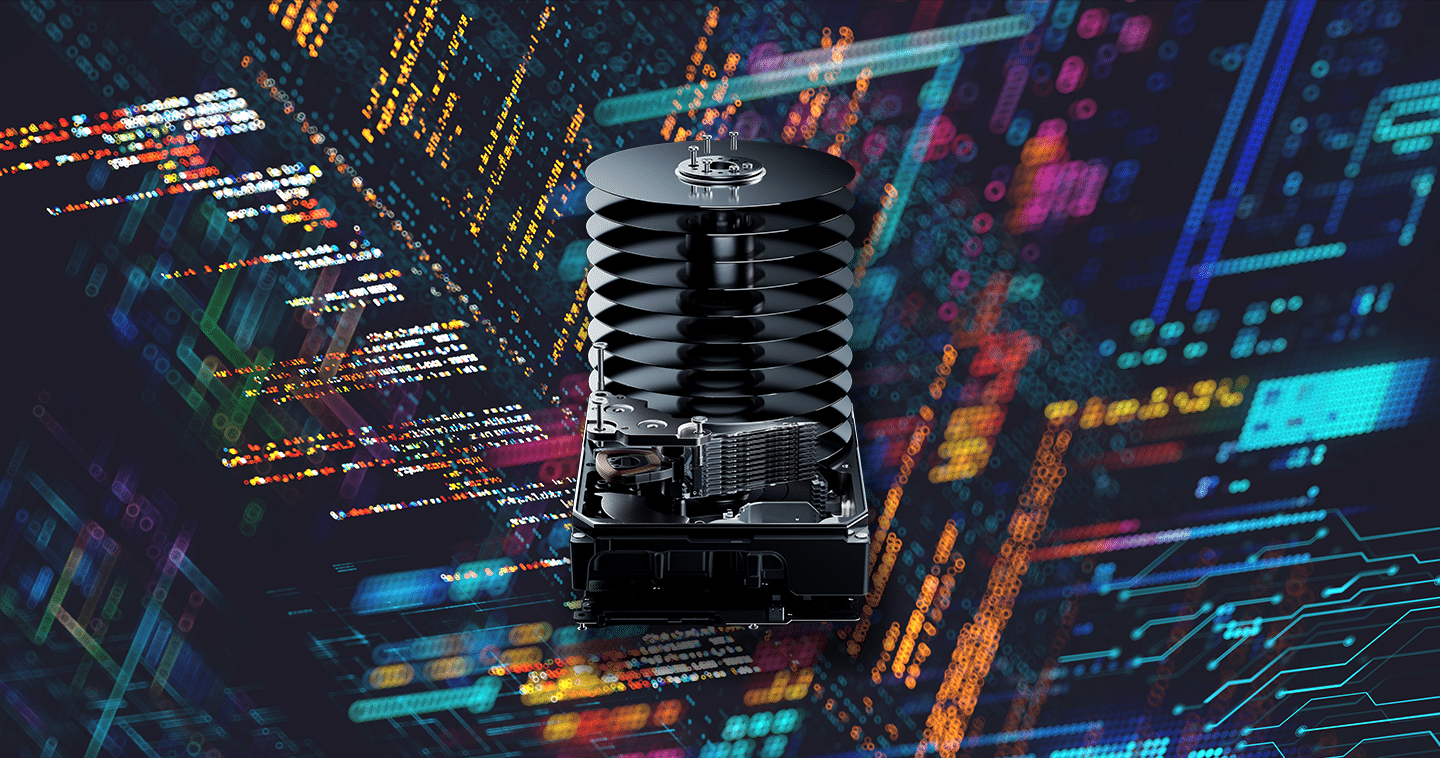Innovation for Independence
Smart home data and automation assist those with special needs
Home automation technology is making life easier and more convenient. But convenience for some, means independence for others. For people with special needs like Todd Stabelfeldt, the data from an automated home does so much more. Seemingly simple tasks, like turning on the TV or locking the front door, can be done handsfree using voice assistance. Smarter devices help him stay self-sufficient as he navigates daily life with a greater level of autonomy and independence.
More Help at Home
Stabelfeldt has used a wheelchair since he was eight, and relies on smart appliances to maneuver and complete tasks around his house. Breakthroughs in data technology enable digital ecosystems to be set up seamlessly in any residence.
His home is a sanctuary of technology that relies on powerful data. The house has been dubbed “The Quadthedral” after Stabelfeldt himself was affectionately endowed with the nickname “The Quadfather.” The assistive technology inside the house is controlled by apps on a smartphone or computer using accessibility features like voice commands, giving him access to everything he needs.
When Stabelfeldt and his wife Karen built The Quadthedral, they wanted the infrastructure for automation but had limited options at the time, so they worked with IT and home automation companies to configure their own smart home setup.
“At first, this was all self-made, we had to push hard to learn and get it done, finding devices and building something to restore my independence,” Stabelfeldt said.
Now, more tech companies are building smart home ecosystems that can be enabled with accessibility features. So, whether the Internet of Things (IoT) devices are controlled by a tablet, smartphone, or personal computer, the data behind these digital ecosystems can help someone with special needs, like Stabelfeldt, have the same amount of access as anyone else.
Life Happens through Data
Being a C4 quadriplegic, Stabelfeldt knows firsthand how data technology can make a difference in someone’s life. Smart devices are designed to help make living more convenient for some people, and for those with special needs it means they can be more self-sufficient and focus on what’s most important.

“I want to be Todd,” he said. “I want to be a husband and a dad. I want to be real and independent. Smart home technology helps make my life better.”
Data storage innovations are contributing to that independence as more appliances are outfitted with smarter features. According to iAccess, an organization dedicated to helping people with special needs live more independently, by 2025 there will be approximately 70 billion home devices connected to the internet. So as companies continue exploring the IoT market, data demands will increase and home appliances will become more intelligent, giving almost everyone access to more seamless living.
Expand the Home Experience
Nearly 90 IoT devices in The Quadthedral help Stabelfeldt throughout the day. Everything from smart speakers, security cameras, garage doors, window treatments, to lights and patio heaters.
Nearly anything with an on/off switch can be accessed and controlled using his voice or through the setup he has on his Permobil Connect power wheelchair.
The more home devices that connect to the internet, the more data is produced. In fact, according to a report from DecisionData.org, the average monthly household data consumption reached 344GB in 2020, which means the amount of Internet data has risen 38x in the last 10 years.
As data usage continues to increase, DecisionData.org projects that the average household will surpass 1TB of monthly data use in the next three years. For Stabelfeldt, more data means he’ll have home features that help him gain more autonomy.
“At the end of the day, it all comes down to data — where you store it and how fast you can move it around,” he said.
He sees the value in smart home technology and how innovations in data storage and management can be part of everyone’s story.
Story Worth Sharing
Stabelfeldt understands the power of data technology more than most, both in his personal life with the smart home devices that help him stay independent, and also in his professional life.
He’s been working in the technology sector since the 90s and has seen the positive impact of data innovations. He now runs his own data company, C4 Database Management, and strives to tell the right data story for his clients.
Because for Stabelfeldt, everything is a story.What some people might see as just a one or zero, he and his team see data points in each individual narrative.
“I’m a storyteller. I’m about the human experience. And I love the fact that we get to be part of their story. It’s all about people — that’s why we’re here,” he said.
Data storage has the power to help everyone live more autonomously at home and stay connected to what’s important. There’s still work to be done for the special needs community to be fully independent, but as smart home technology continues to expand, the possibilities will keep growing.




